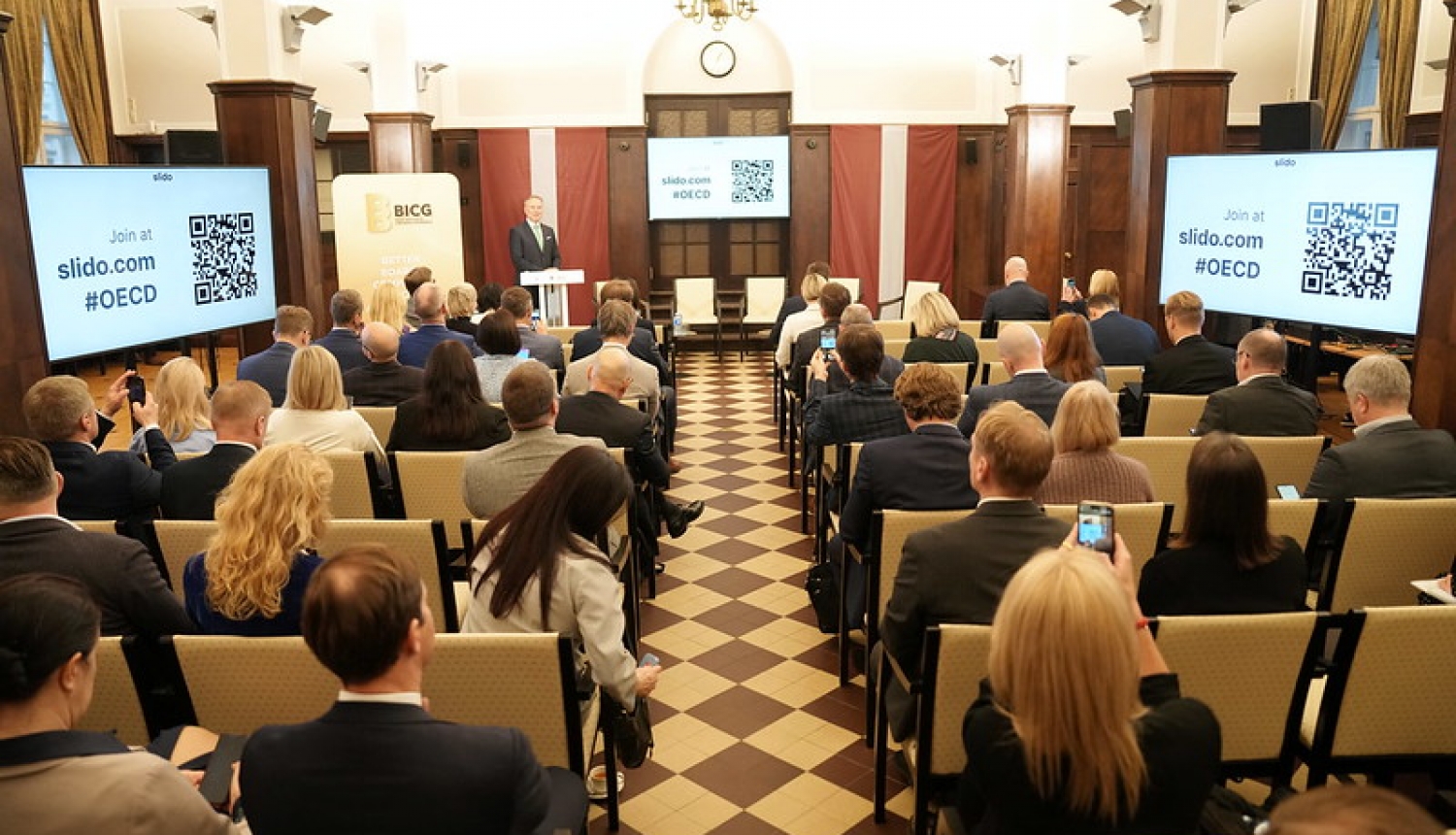On 26 November, the Baltic Conference was held in Rīga to present the updated OECD Guidelines on Corporate Governance of State-Owned Enterprises. The conference brought together high-level experts and policy makers to discuss how these Guidelines can improve the transparency of state-owned enterprises, promote sustainability and professional governance, as well as contribute to economic development and public trust.
The OECD Guidelines on Corporate Governance of State-Owned Enterprises were published in 2005, and first updated in 2015. This year, a number of significant changes have been made to the Guidelines, including the integration of sustainability objectives, strengthening the independence and competence of capital companies' councils, and enhancing transparency, integrity and accountability.
The conference was opened by Sara Sultan, Head of State-Owned Enterprise Unit at OECD, who presented the new Guidelines, highlighting the most important changes. One of the key innovations is the inclusion of sustainability objectives in SOE strategies, covering, for instance, climate issues, the use of resources and social impact. The largest companies will have to publish detailed sustainability reports as of 2025.
The Director of the State Chancellery Raivis Kronbergs, also delivered a presentation, emphasizing the role of the OECD Guidelines and highlighted Latvia's progress in improving SEO governance. He pointed out that Latvia has already started to introduce sustainability reporting also for capital companies of public entities, which will provide comprehensive and comparable information on their impact on sustainability. These changes together with the letters of expectation, will ensure that the public is informed of the expected results and will help build trust.
The selection of the council members of state-owned enterprises was one of the central topics of the conference. The new Guidelines state that selection should be based on professional criteria, mitigating political influence and promoting the involvement of independent experts. The Senior Policy Adviser at OECD Kimmo Viertola emphasised that the selection of councils of capital companies should take place in a transparent process. It should be objective and based on professional knowledge and experience relevant to the company's sector and strategic objectives, thus ensuring that political influence is reduced and conflicts of interest avoided.
Discussions with participants highlighted the main challenges related to the implementation of the Guidelines. The Head of the State-Owned Enterprise Unit at OECD Sarah Sultan pointed out that ensuring the independence and competence of councils will be the greatest challenge, as it requires significant changes in the selection and operating processes, based on high professional standards and objective criteria. She also underlined that the experiences of different countries cannot be directly compared, as the legislative and institutional framework of each country differs and requires a unique approach. Therefore, the path rather than the goal of ensuring efficient management of state-owned enterprises is the most important in the process.
The President of the Baltic Institute of Corporate Governance Rytis Ambrazevičius concluded the conference by pointing out that our citizens are the real owners of state-owned enterprises. He emphasised that it is important for shareholders to be aware of this fact, as the citizens should be the ones who can trust that state-owned enterprises will fulfil their role of providing high-quality and accessible services to society.
He also underlined the importance of public trust in state-owned enterprises, emphasising that the OECD Guidelines are an important instrument for building public confidence, as well as expressed his hope that all participants and other stakeholders at the conference were genuinely committed to improving corporate governance of state-owned enterprises and to actively implementing the Guidelines in practice.
The new Guidelines also offer a platform for the Baltic States to foster cooperation, exchange experiences and implement international corporate governance standards. In the energy, transport and communications sectors, where state-owned enterprises play an important role, this approach will help to ensure sustainable development and foster confidence among investors and stakeholders.
The conference is organised by the State Chancellery of Latvia in cooperation with the Baltic Institute for Corporate Governance (BICG) and the OECD.





